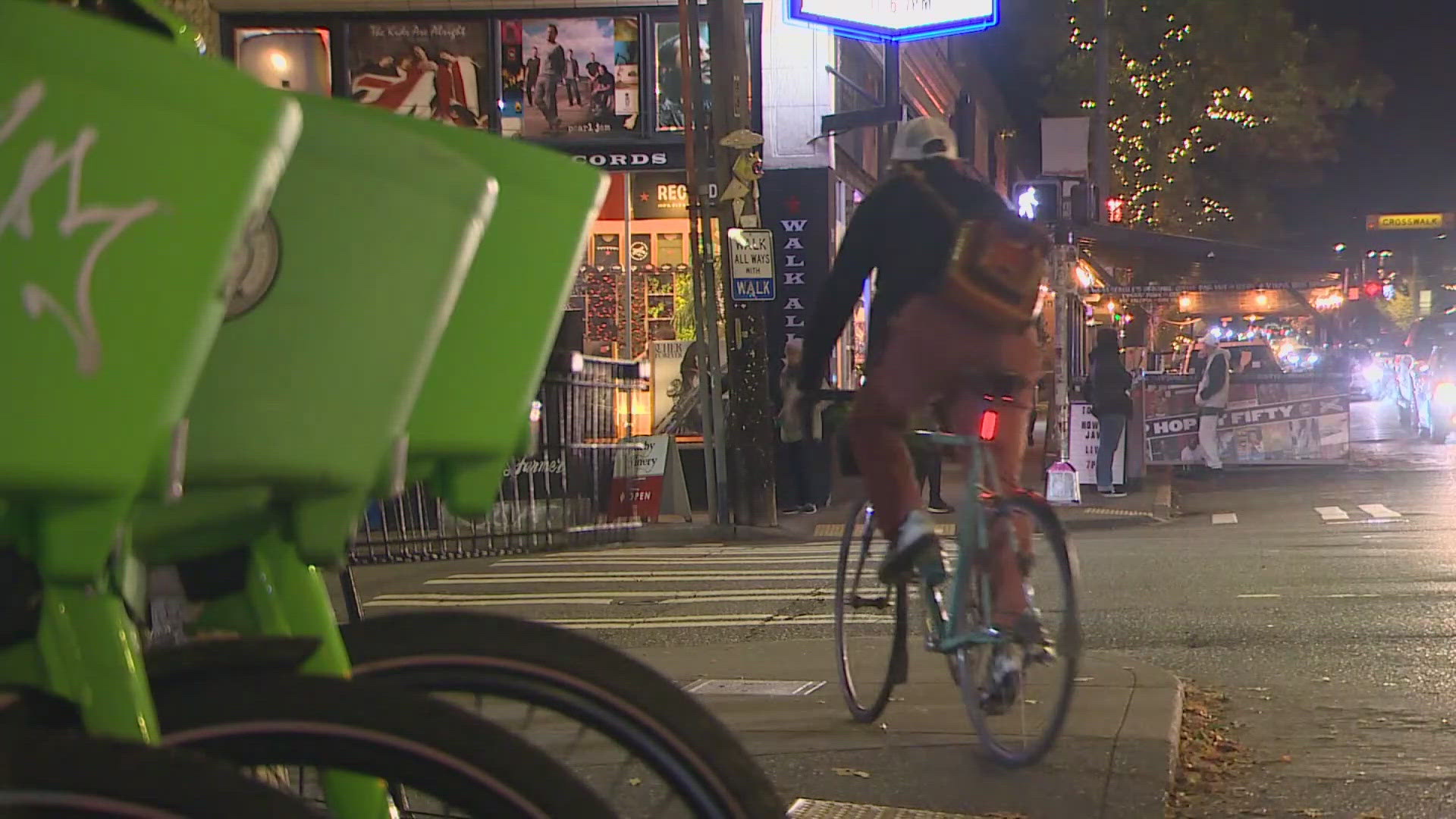SEATTLE — One day after Seattle voters approved a $1.55 billion transportation levy, Rita Hulsman was filled with gratitude as one of the community's leading voices behind the passage.
Less than one year ago, Hulsman was learning to cope with the loss of her husband Steve, who was killed when a driver crashed into him while he was riding his bicycle.
"I could have just sat home and cried every day for the last year and I didn't want to do that. I know my husband wouldn't want me to do that, either," Hulsman told KING 5. "He would have wanted me to do something positive. I couldn't just be a victim and say nothing can be done about this."
She attended every committee meeting and hearing as the transportation levy was discussed by Seattle City Council.
She learned she was not alone, that other families were devastated by similar tragedies.
"I thought, this can't go on. Just no, a hard no on that," Hulsman said. "I've seen this city grow and I want to make sure it grows for all of us."
And so, she kept fighting and sharing her story, practically pleading with city leaders to make a difference.
"There were a lot of concerns expressed in a lot of ways," said councilmember Rob Saka, who chairs the Transportation Committee. "I worked hard with my council colleagues to bring their concerns to life. We did that by crafting a package of investments that focuses on safety. These are people's lives that are at stake."
Saka added $100 million to the initial plan first proposed by Mayor Bruce Harrell and the Seattle Department of Transportation.
On a broad level, the goal is to improve street maintenance, bridges, sidewalks and transit, along with a renewed focus on pedestrian and bicyclist safety.
"I think we hit the right balance of safety, reliability and connectivity," Harrell told KING 5 on Wednesday. "We're designing a system to make sure we recognize every life is vital."
According to plans presented in council chambers, the taxpayer-funded proposals include:
$403 million for street maintenance, $221 million for bridge improvements, $193 million for pedestrian safety, $160 million for vision zero, school and neighborhood safety, $151 million for transit improvements, $133 million for bicycle safety and $100 million for signals and operations.
Additional funding has been designated for public spaces and freight transportation, while addressing climate concerns.
The levy is expected to cost homeowners $65 each year, for every $100,000 of assessed home value.

